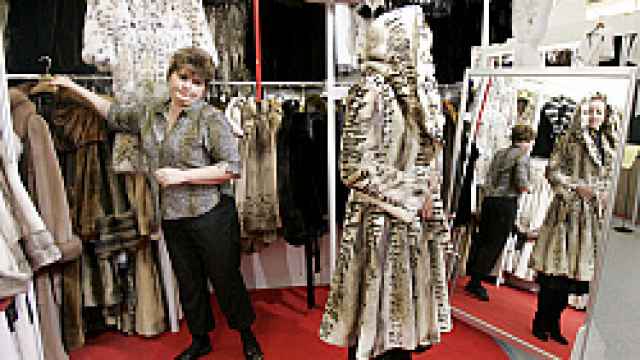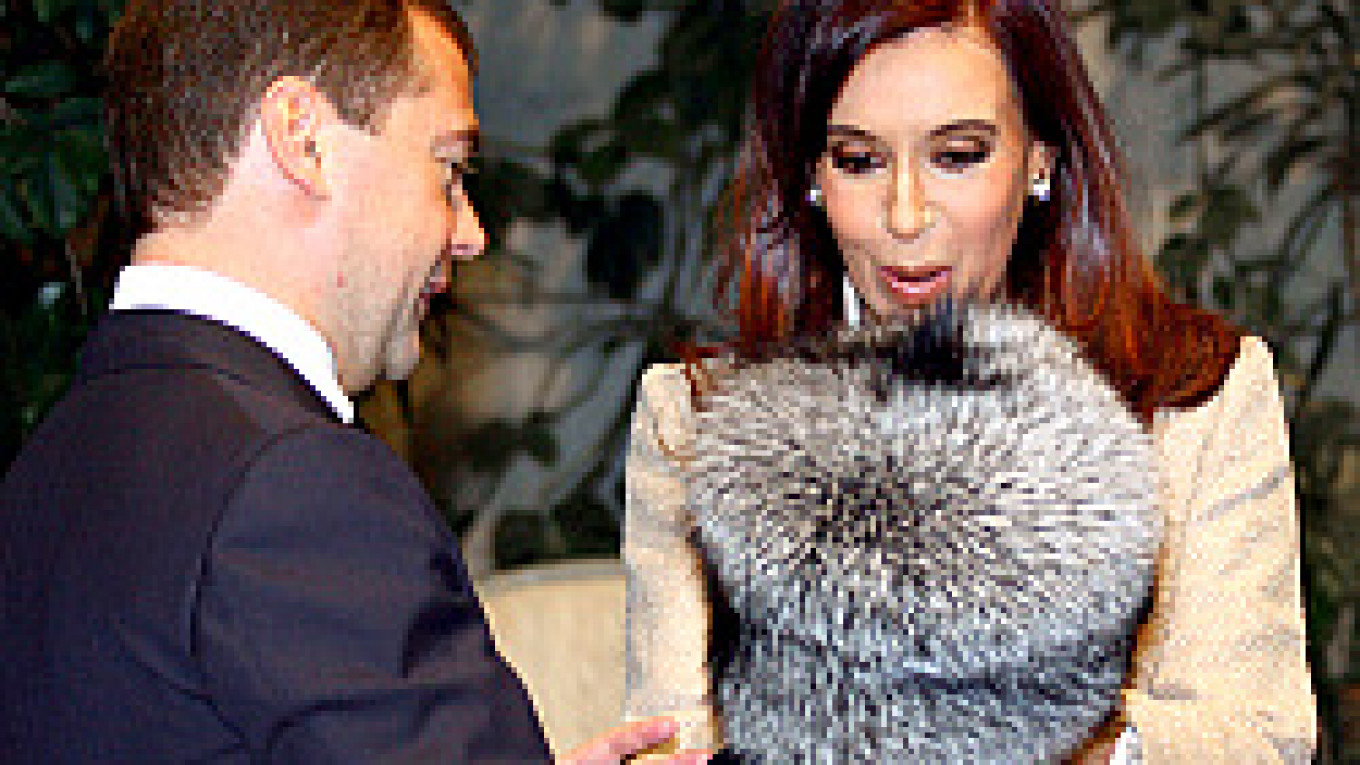This year's total fur sales -- mainly coats -- will halve to about $2.5 billion, and 2009 will remain tough, said Sergei Stolbov, head of the Russian Fur Union.
"It's a complex situation for the fur business because, as well as the financial crisis, we also have to deal with worsening weather conditions," he said during an interview in his windowless office in central Moscow.
Russia has been hit badly by a global economic crisis, and many bankers believe that a 10-year boom that drove soaring consumption is about to stall.
But for the fur industry, milder winters are the problem.
Moscow temperatures have hovered above 5 degrees Celsius in the first 11 days of December compared to a historical average of about minus 5 C, though in Siberia freezing temperatures are still the norm.
"When people are not cold, they don't need a fur coat," Stolbov said.
Now that spare cash is tight and the winter is mild, fur coats have dropped off people's shopping lists. Temperatures have risen globally, a change some scientists blame on greenhouse gases from burning fossil fuels.
At a market in the suburbs of Moscow, Tatyana Kolyeskina -- dressed in an ankle-length mink fur coat -- cast a hand along dozens of furs hanging on the sides of her stall. The fox and mink coats ranged from 25,000 rubles ($895) to 60,000 rubles, and sales were down.
 Alexander Natruskin / Reuters A woman trying on a fur coat during a fur fair in Moscow earlier this week. | |
"This is the worst I've seen it in 15 years of working here," she said. "The crisis is bad, but these winters are dreadful."
Images of Muscovites wrapped in fur and hurrying through snowy streets with their breath freezing in the air have been increasingly rare in the last three years.
But furs still make good gifts. On Wednesday, President Dmitry Medvedev presented Argentine President Cristina Fernandez with a silver fox fur hat at the Kremlin, where they held talks aimed at promoting trade and energy ties.
In his office, Stolbov of the Russian Fur Union frowned and said the combination of a warm winter and the economic crisis meant that the situation was worse than the 1998 crisis, when Russia defaulted on domestic debt and allowed the ruble to devalue.
"There was a crisis in 1998, but that was a financial crisis. There was a cold winter then and demand for fur coats stayed high," he said.
Despite Western consumers ditching fur for ethical reasons, Russians still consider fur a stylish status symbol.
Alongside China, Russia is the biggest fur market in the world.
The industry employs about 200,000 people in Russia, Stolbov said, although most furs now are imported.
Outside Stolbov's office, a light drizzle fell and cars splashed through dirty puddles in the uneven road. There was barely a fur coat in sight.
"Who asked Putin when will there be snow?" Stolbov said rhetorically, referring to Prime Minister Vladimir Putin's three-hour phone-in session at the start of December. "That person must have worked for the fur industry."
A Message from The Moscow Times:
Dear readers,
We are facing unprecedented challenges. Russia's Prosecutor General's Office has designated The Moscow Times as an "undesirable" organization, criminalizing our work and putting our staff at risk of prosecution. This follows our earlier unjust labeling as a "foreign agent."
These actions are direct attempts to silence independent journalism in Russia. The authorities claim our work "discredits the decisions of the Russian leadership." We see things differently: we strive to provide accurate, unbiased reporting on Russia.
We, the journalists of The Moscow Times, refuse to be silenced. But to continue our work, we need your help.
Your support, no matter how small, makes a world of difference. If you can, please support us monthly starting from just $2. It's quick to set up, and every contribution makes a significant impact.
By supporting The Moscow Times, you're defending open, independent journalism in the face of repression. Thank you for standing with us.
Remind me later.


